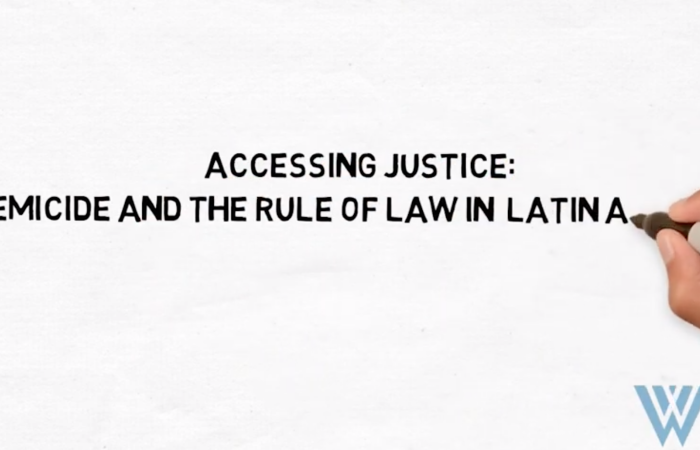About Accessing Justice: Gender-Based Violence and the Rule of Law
Gender-based violence is a global pandemic that impacts the lives of one in three women worldwide.
One in four women experiences domestic abuse, the most common form of gender-based violence. But only 29% of women who experience domestic abuse report that violence.
Why does this gap exist? Survivors often face barriers when they seek help and justice:
- Violence is socially accepted
- Abuse is minimized or dismissed
- Survivors are blamed for the violence
- Bribes are required to file a case
- Survivors are discouraged from pursuing justice
- Support services are underfunded and understaffed
The consequences can be fatal. Globally, 38% of murders of women are committed by a male intimate partner.
Many countries have passed laws intended to improve access to justice and guarantee women the right to live free from fear and violence. But these laws have failed to lower the rate of violence against women. Attitudes toward gender and violence are complex and deeply-engrained.
In recognition of the need to explore more fully the connections and gaps between laws and policies and the persistence of gender-based violence around the world, in 2020, the Wilson Center launched a new project, "Accessing Justice," to examine gender-based violence from a rule of law lens. From its initial focus on Latin America (particularly Brazil, El Salvador, and Mexico), the project has grown to encompass the entire globe, from Alaska to South Africa and beyond.
ABOUT THE PROJECT
2020 "Accessing Justice: Gender-Based Violence and the Rule of Law"
When and why are laws insufficient to protect women, and how can we reduce and eliminate barriers to implementation? To answer these questions, the Wilson Center is examining case studies and data from around the world to facilitate information-sharing and, through the experiences of women and men involved in this space—researchers, practitioners, and survivors—draw out best practices for confronting and reducing GBV worldwide.
2021-2022 "Gender-Based Violence on a Global Scale"
The Gender-Based Violence project works to raise awareness, provide information, and highlight best practices for confronting and reducing GBV worldwide. To this end, the Wilson Center's GBV Project examines case studies and data from countries around the world to facilitate information-sharing and develop evidence-based and data-driven solutions towards eliminating GBV. Through its work, the Project aims to shed light in existing gaps in legislation and oriented policies to effectively protect women from violence and develop avenues to reduce and eliminate barriers to implementation. By highlighting the need for data-driven solutions, the Project provides information on countries that are making strides in improving the lives of women and girls while identifying countries that have stagnated in their commitments to citizens in eliminating GBV and preserving human rights. Through data-driven policy recommendations, the Project aims to provide pathways to develop solutions based on reliable evidence to protect women and girls from GBV.
About the Project
-
2020 Project | Femicide and the Rule of Law in Latin America
-
2021 Project | Gender-Based Violence and the Rule of Law (Global)

Learn more
In 2020, women’s rights and gender equality are taking center stage. In March, the Wilson Center launched a new initiative examining gender-based violence in Latin America with a focus on its most extreme form, femicide. Watch the video to learn more.
WatchAll too often the women and girls subjected to violence are violated twice – the first time when they are subjected to violence, and the second time when they seek, and do not find, the services and justice to which they are entitled.
- Michele Bachelet, former Executive Director of UN Women and former President of Chile




